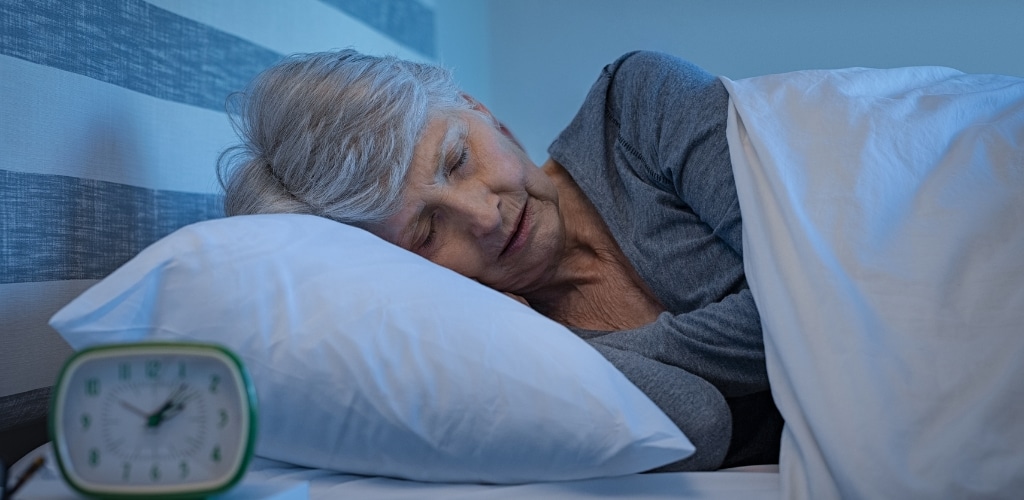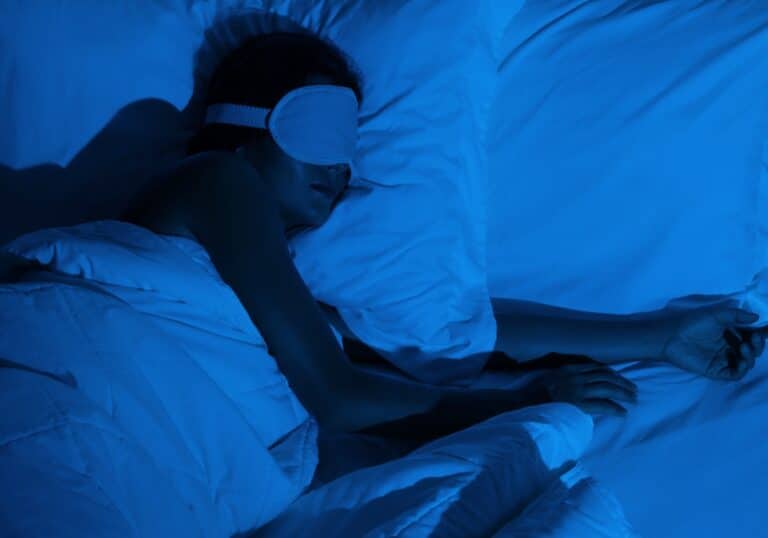How to Help Dementia Patients Sleep
Posted on September 29th, 2023 to Sleep by Healer Staff Writer

If you have a loved one with dementia, sleep can be a concerning issue. Individuals with dementia often have problems falling asleep and staying asleep at night, which disrupts their wakefulness and mood during the day. Therefore, finding an effective plan for how to get dementia patients to sleep can make a drastic difference in their quality of life.
View our products for sleeplessness due to Dementia
Why Dementia Patients Don’t Sleep Well
Decreased function in the suprachiasmatic nucleus (SCN) of the brain is common in dementia patients, and this can disrupt the circadian rhythm. The circadian rhythm regulates sleep/wake cycles, which means dementia patients often have issues feeling sleepy and awake at typical times of day and night.
Further, sleep structure can change with dementia; patients may not spend as much time in slow-wave sleep or REM sleep. Therefore, patients can wake more frequently through the night, wake too early, or not feel well-rested during the day.
Other factors can cause sleep disturbances in dementia patients as well, such as age, medications, other co-occurring conditions, or increased anxiety/agitation in the evening (“sundowning”).
What Stage of Dementia Are You in When You Sleep Most of the Day?
Caregivers often wonder, why do dementia patients sleep so much throughout the day? Dementia patients often sleep a lot throughout the day because they don’t get good, restful sleep at night.
When dementia is in mild to moderate stages, 25 percent of patients experience sleep disturbances. When the condition reaches a severe stage, at least 50 percent of patients have sleep issues. Daytime fatigue can stem from a combination of the aforementioned factors.
How to Get Dementia Patients to Sleep at Night
Sleep disturbances can be taxing on both the patient and the caregiver. Therefore, if your loved one is struggling with sleep, it will be important to discuss options with their primary physician. However, there are a few tips that can help, such as:
- Establishing a good daily routine and bedtime routine
- Avoiding stimulants like caffeine, nicotine, and even TV close to bedtime
- Limiting daytime naps when possible
- Adjusting medications to better accommodate sleep
- Providing proper levels of indoor light (i.e. bright light in the daytime and dim/amber lighting at night, avoiding screens after dusk)
- Providing a relaxing atmosphere at night (e.g. soft music, low lights, the right bedroom temperature)
What Is the Best Sleep Aid for Dementia Patients?
Many of the drugs used to treat insomnia can be unsafe for dementia patients because they can negatively affect cognition. However, more natural and gentle options like melatonin supplements or even CBD Respite Gummies (cannabidiol) may be helpful. Melatonin has been shown to be a viable sleep aid for some Alzheimer’s patients. Likewise, CBD is gaining more attention as a potential sleep aid.
A Word from Healer on Dementia and Sleep
Dementia can bring about many new concerns that affect the quality of life of the patient, including sleep disruptions. While there are options that can help, always discuss options with the patient’s doctor before choosing a sleep aid, even natural options.
View our products for sleeplessness due to Dementia
The information in this post/article is provided for educational purposes and is not a substitute for or alternative to information from your healthcare providers. Statements and claims on this website have not been evaluated by the Food and Drug Administration. Any products mentioned are not intended to diagnose, treat, cure or prevent any disease.


